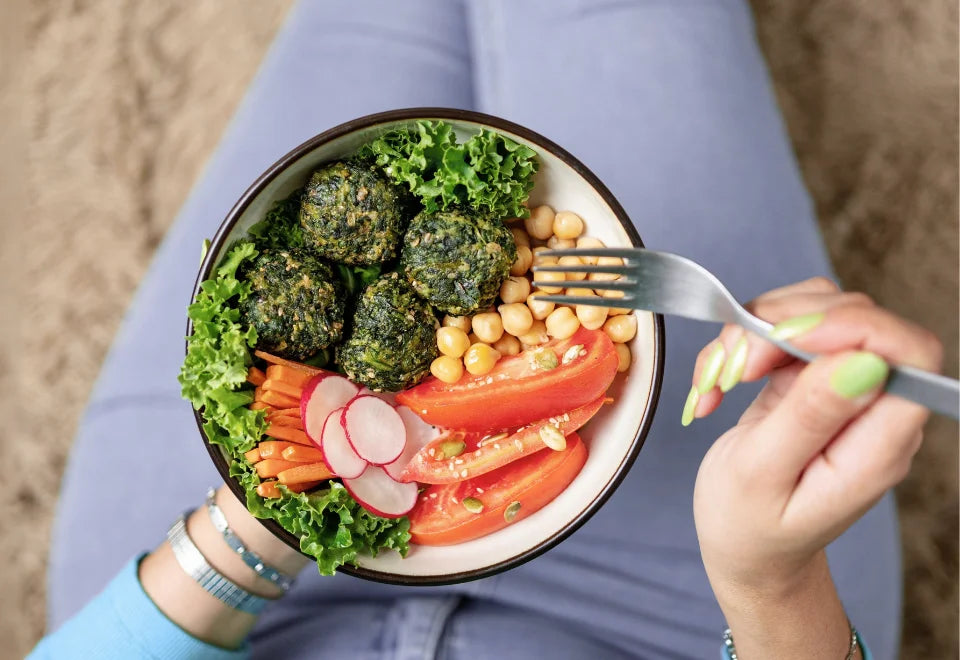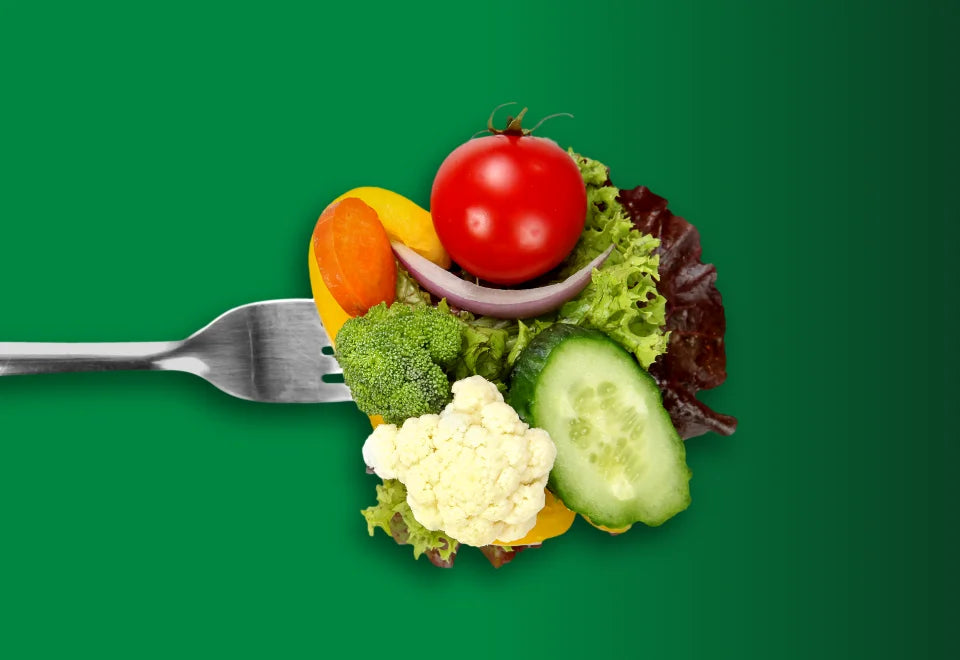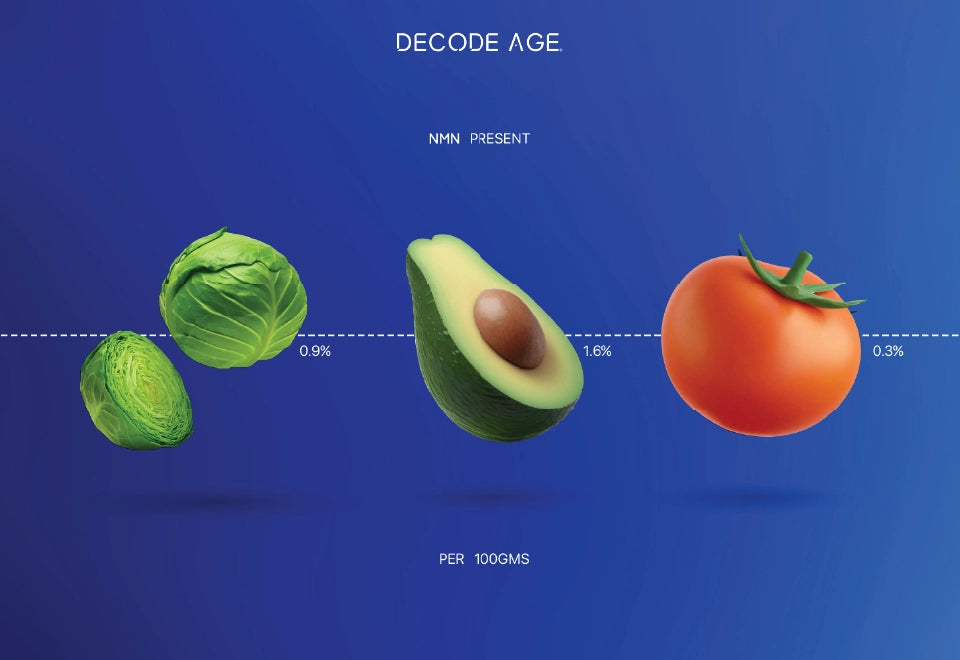A "healthy ageing phenotype" involves maintaining the body's systems at optimal levels on organ, tissue, and molecular fronts throughout life. Achieving a long and healthy life is influenced by lifestyle choices, particularly diet. While the impact of specific nutrients on ageing can vary, overall eating habits play a crucial role. The emphasis is shifting towards promoting lifelong health through dietary patterns, such as the Mediterranean diet, and specific recommendations.
Broccoli, a vegetable superfood, is loaded with vitamins (A, B, C, D, E, K), antioxidants, and potent compounds like polyphenols, flavonoids, sulforaphane, NMN, and quercetin. It also provides essential minerals like calcium, potassium, sodium, and phosphorus, along with trace elements such as zinc, selenium, iron, magnesium, and manganese. Nutrition experts endorse incorporating broccoli into your daily diet as an easy way to enjoy one of the healthiest veggies available. This aligns with the broader goal of supporting a healthy ageing phenotype through mindful dietary choices. (Nagraj et al., 2020)
Essential Molecules Found in Broccoli
Including broccoli in your diet provides a diverse range of essential molecules, contributing to a well-rounded and nutritious approach to health and wellness. Here are some key molecules found in broccoli:
-
Glucosinolates
Vegetables like broccoli, Brussels sprouts, cauliflower, and cabbage, from the Cruciferae family, are rich in glucosinolates. These glycosides exhibit bactericidal, fungicidal, anti-inflammatory, and potent anticancer properties, contributing to overall well-being. Glucosinolates are broken down into isothiocyanates by the gut microbiota. Isothiocyanates have potent anticancer and antioxidant benefits.
-
Sulforaphane
Activated when cruciferous vegetables are damaged, sulforaphane, a sulfur-rich compound found in broccoli, is linked to various health benefits, positively impacting conditions such as cancer, heart disease, diabetes, and digestion.
-
Flavonols
Flavonoids are phytochemicals commonly found in plant foods. Quercetin, a flavonoid found in broccoli, possesses anti-inflammatory properties, inhibiting the production of inflammatory substances and reducing inflammation in the body. Flavonoids are researched to contribute to the antioxidant, anti-inflammatory, and anticancer activity of plants.

Fig: Essential molecules found in Brocolli that support health and vitality
-
Carotenoids
Natural compounds in broccoli, such as β-carotene and lutein, lower the risk of cancer by protecting cell DNA. β-Carotene contributes to healthy bones, eyes, and skin while lutein, known as eye vitamin, contributes to improved eye health. Additionally, carotenoids are known to have anti-ageing properties.
-
Minerals
Loaded with potassium, calcium, iron, phosphorus, zinc, manganese, and magnesium, broccoli supports enzyme functions, and cellular communication regulation, and is beneficial for preventing anaemia and osteoporosis.
-
Vitamins
Broccoli is a rich source of vitamins C, K, and A. Vitamin A supports eye health, preventing age-related macular degeneration and cataracts, while vitamin C boosts the immune system and aids in wound healing. Vitamin K is essential for maintaining healthy bones.
-
Fibre
An excellent source of dietary fibre, broccoli aids digestion, promotes a feeling of fullness, and contributes to a healthy digestive system. Dietary fibre consumption is linked to decreased inflammation in the body and improved gut health.
-
NMN
NMN is a precursor to NAD+, a crucial co-enzyme in over 500 metabolic processes. Broccoli's high relative amounts of NMN may offer potential health benefits, including improved energy metabolism, reduced age-related fatigue, enhanced cognitive function, decreased inflammation, a lower risk of age-related chronic diseases, and a potential slowdown of the ageing process.
What Role Do These Molecules Play in the Ageing Process?
Broccoli's popularity as a superfood is attributed to its rich nutrients and bioactive compound content. Ageing can contribute to various conditions such as inflammation, increased oxidative stress, lowered metabolism, and imbalances in cholesterol levels. Scientists have conducted extensive research on broccoli, unveiling numerous health benefits associated with its biological activities:
Reduces Inflammation
Broccoli is rich in bioactive compounds that have demonstrated the ability to reduce inflammation in the body's tissues. It is theorised that these compounds work synergistically, although some also show individual anti-inflammatory effects.
Sulforaphane, found in broccoli, exhibits potent anti-inflammatory properties. Studies have indicated that sulforaphane can effectively inhibit the production of inflammatory substances and reduce markers of inflammation. Additionally, kaempferol, a flavonoid in broccoli, showcases robust anti-inflammatory capacity in animal and test-tube studies.
Reduces Oxidative Stress
Antioxidants play a crucial role in inhibiting or neutralising cell damage caused by free radicals, leading to a health-protective effect. Sulforaphane, found in broccoli, has been studied in test-tube and animal experiments, showing potential health benefits. These include reductions in blood sugar and cholesterol levels, oxidative stress, and the development of chronic diseases.
Quercetin, another antioxidant present in broccoli, is not only effective in combating oxidative stress but also serves as a senolytic, helping reduce the burden of senescent cells. Broccoli further contributes measurable amounts of antioxidants such as Vitamin C, lutein, and zeaxanthin, all of which play roles in preventing oxidative stress and cellular damage.
Aids in Blood Sugar Control
Broccoli, recognized as a low-glycemic food, contributes to normalising blood sugar levels. Sulforaphane, a compound in broccoli, can activate specific receptors, improving glucose homeostasis in conditions of hyperglycemia and oxidative stress. A human study demonstrated a significant decrease in insulin resistance among individuals with type 2 diabetes who consumed broccoli sprouts daily for one month. Additionally, broccoli is a good source of fibre. Some research suggests that a higher intake of dietary fibre is associated with lower blood sugar levels and improved diabetic control.
Improves Cardiovascular Health
Broccoli, with its fibre, fatty acids, and vitamins, supports heart health by controlling blood pressure and lowering bad cholesterol. Studies show that broccoli sprouts, rich in sulforaphane, can reduce oxidative stress, improve blood pressure, and positively impact cholesterol levels.
Elevated levels of "bad" LDL cholesterol and triglycerides are recognised as significant risk factors for heart disease. Broccoli may play a role in improving these markers. In one study, individuals treated with a powdered broccoli sprout supplement experienced a notable reduction in triglycerides and "bad" LDL cholesterol, along with an increase in "good" HDL cholesterol levels.
Enhances Gut Health
Bowel regularity and a robust community of healthy bacteria in your colon are crucial aspects of digestive health. Including fibre- and antioxidant-rich foods, such as broccoli, may contribute to maintaining a healthy gut function.
Broccoli, being rich in dietary fibre and phytonutrients like glucosinolates, plays a role in supporting digestive health. When consumed, broccoli allows the gastrointestinal microbiota to convert inactive glucosinolates into active isothiocyanates-having potent anticancer and cardiovascular benefits. This process enhances the function of human gut bacteria, promoting a healthy and well-balanced gut environment.
Provides Cognitive Benefits
Leafy greens, including kale, spinach, collards, and broccoli, abound in brain-healthy nutrients such as vitamin K, lutein, folate, and beta-carotene. Research suggests that incorporating these plant-based foods into your diet may aid in slowing age-associated cognitive decline. Broccoli, in particular, is rich in brain-healthy antioxidants like vitamin C and flavonoids. Moreover, it contains glucosinolates, compounds that the body breaks down into isothiocyanates, which can lower the risk of neurodegenerative diseases. Notably, sulforaphane in broccoli acts preventively against neurodegenerative conditions like Alzheimer's and Parkinson's disease, addressing characteristics such as inflammation, neuronal loss, and oxidative stress.
Slows Down Ageing
Ageing is associated with a gradual decline in metabolism, the accumulation of damage, oxidative stress, and inflammation. While ageing is an inevitable natural process, the quality of one's diet is considered a significant factor influencing genetic expression and the development of age-related diseases.
Sulforaphane, a key bioactive compound found in broccoli, has the potential to slow the biochemical processes of ageing by enhancing the expression of antioxidant genes. As NAD+ levels decrease with age, contributing to cellular damage and reduced mitochondrial activity, NMN intake from sources like broccoli may help counteract these effects.
Ageing also leads to the accumulation of senescent or "zombie" cells. Quercetin in broccoli acts as a potent senolytic, eliminating these senescent cells, thereby reducing inflammation and improving tissue health. In essence, incorporating broccoli into the diet may contribute to a comprehensive strategy for promoting healthy ageing by addressing various aspects of the ageing process.
How Much Broccoli Consumption is Recommended?
In general, one cup of broccoli weighs around 76 grams. In terms of supporting healthy ageing, Jeffery and Keck determined that 3–5 servings of cruciferous vegetables such as broccoli per week could decrease cancer risk by over 30%. (Kaiser et al., 2021). While we understand that having broccoli every day can be a bit boring, here are our top 3 favourite recipes!
Lemon Parmesan Roasted Broccoli
⏰ Time: 32 mins
Prep Time: 10min | Cook Time: 22 mins
Nutritional Facts (per serving)
Cal: 193 | Fat: 11g | Carbs: 19g | Protein: 9g
Ingredients:
- 1 pound broccoli florets
- 1 tablespoon olive oil
- 1/2 teaspoon kosher salt
- 1/4 cup grated Parmesan cheese
- 1 tablespoon lemon zest
Directions:
- Preheat the oven to 425 degrees F (220 degrees C).
- Toss broccoli florets with olive oil and kosher salt on a half-sheet pan, ensuring an even spread.
- Roast the broccoli in the preheated oven until tender, which usually takes 20 to 25 minutes.
- Sprinkle Parmesan cheese and lemon zest over the broccoli. Return to the oven until the cheese is melted and golden brown, taking about 3 to 5 minutes. Keep a close eye on it!
Roasted Broccoli
⏰ Time: 30 minutes
Prep Time: 10min | Cook Time: 20 mins
Nutritional Facts (per serving)
Calories: 63 | Fat: 4g | Carbs: 7g | Protein: 3g
Ingredients:
- 14 ounces broccoli
- 1 tablespoon olive oil
- Salt and ground black pepper to taste
Directions:
- Begin by heating the oven to 400 degrees F (200 degrees C).
- Separate the broccoli florets from the stalk. Peel the stalk and cut it into 1/4-inch slices. Combine the florets and stem pieces with olive oil in a bowl, then move them to a baking sheet. Add salt and pepper for seasoning.
- Roast the mixture in the preheated oven until the broccoli becomes tender and lightly browned, typically around 18 to 20 minutes.
Easy Loaded Baked Omelet Muffins
⏰ Time: 60 minutes
Prep Time: 25 mins | Cook Time: 35 mins
Nutritional Facts (per serving)
Calories: 212 | Fat: 15g | Carbs: 5g| Protein: 16g
Ingredients:
- 2 cups finely chopped broccoli
- 4 scallions, sliced
- 8 large eggs
- 1 cup shredded Cheddar cheese
- ½ cup low-fat milk
- ½ teaspoon salt
- ½ teaspoon ground pepper
Directions:
- Preheat oven to 325 degrees F. Coat a 12-cup muffin tin with cooking spray.
- Heat oil in a pan. Add broccoli and scallions and cook, stirring, until soft, about 5 minutes. Remove from heat and let cool for 5 minutes.
- Meanwhile, whisk eggs, cheese, milk, salt and pepper in a large bowl. Stir in the scallions and broccoli mixture. Divide the egg mixture among the prepared muffin cups.
- Bake until firm to the touch, 25 to 30 minutes. Let stand for 5 minutes before removing from the muffin tin.
Conclusion
In conclusion, broccoli emerges as a versatile ally in promoting health and overall well-being. Packed with vitamins and potent antioxidants, broccoli's anti-ageing benefits combat free radicals responsible for cellular damage. Beyond broccoli's rich content of antioxidants, essential nutrients like vitamin C, quercetin, and NMN, and minerals such as copper and zinc, contribute to overall health. Notably, studies highlight the ability of kaempferol, a compound in broccoli, to mitigate the impact of allergy-related substances on the body. Therefore, incorporating broccoli into your diet offers a holistic approach to healthy ageing.
FAQs
Is it good to eat broccoli every day?
Yes, eating broccoli every day is a great idea because it's incredibly healthy. Broccoli is a superfood packed with vitamins, antioxidants, and compounds that fight cancer. It's known for its high nutritional value, containing essential elements like polyphenols, flavonoids, carotenoids, sulforaphane, NMN, quercetin, and more. Food authorities worldwide recommend including broccoli in your daily diet.
What are the top five primary nutrients we can obtain from broccoli?
Vitamin C is crucial for immune function, skin health, and acting as an antioxidant. Fibre promotes digestive health and aids in regulating blood sugar levels. Vitamin K is essential for both blood clotting and maintaining bone health. Potassium is vital for sustaining fluid balance and supporting heart and muscle function.
How much NMN is in broccoli?
The natural compound β-Nicotinamide mononucleotide (NMN) is present in small amounts in various plants like edamame and broccoli Specifically, broccoli contains between 0.25 and 1.88 mg of NMN per 100 g.
What food has the highest NMN?
Vegetables such as broccoli and edamame stand out as rich sources of NMN, a compound crucial for NAD+ synthesis. In terms of food equivalents providing 300 mg of NMN, edamame and broccoli are notable, with edamame contributing approximately 24,000 units and broccoli offering 4,800 units. These quantities highlight the potential of incorporating these vegetables into one's diet as a means of supporting NAD+ synthesis.
Can we take NMN instead of broccoli?
NMN is found in various vegetables and foods like edamame, broccoli, avocado, fruits, and seeds, providing approximately 2 mg of NMN per 100 grams. However, this amount is insufficient for anti-aging purposes. As ageing reduces the body's NMN production, dietary intake alone cannot compensate. Hence, supplementation is necessary along with diet to meet NMN requirements for anti-ageing purposes.
Which broccoli is better: Raw or cooked?
According to recent research in the Journal of Agricultural and Food Chemistry, raw broccoli provides significantly more beneficial nutrients than cooked broccoli, as some nutrients can be lost when cooked.
Is broccoli good for anti-ageing?
Broccoli, a reliable source of anti-inflammatory and ageing support, is enriched with vital nutrients such as vitamins C and K, a diverse range of antioxidants, NMN, quercetin, fibre, folate, and calcium. Vitamin C, essential for collagen production, contributes to skin strength and elasticity. Additionally, the presence of lutein in broccoli is associated with enhanced memory and brain function, and eye health. The vegetable's inclusion of vitamin K and calcium supports bone health, potentially aiding in the prevention of osteoporosis.





























Leave a comment
All comments are moderated before being published.
This site is protected by hCaptcha and the hCaptcha Privacy Policy and Terms of Service apply.